Image

Project Number
Integrated Water Resource Management and Ecosystem-based Adaptation (EbA) in the Xe Bang Hieng River Basin and Luang Prabang City
Project Status
Status 1
Project Date
Project category
Category 1
Project Stage
Stage 1
Project Area of Work
Area of Work 1
Project Donor & Co-financing
Donor 1
Project Contact Details
For more information, please contact:
Phouphet Chittaphone
Database Management and Communication Officer IWRM-EbA Project
Email: [email protected]
Phouphet Chittaphone
Database Management and Communication Officer IWRM-EbA Project
Email: [email protected]
Share:
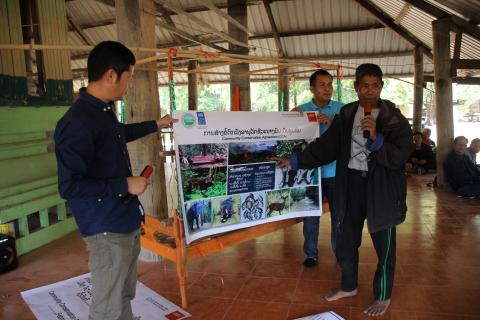
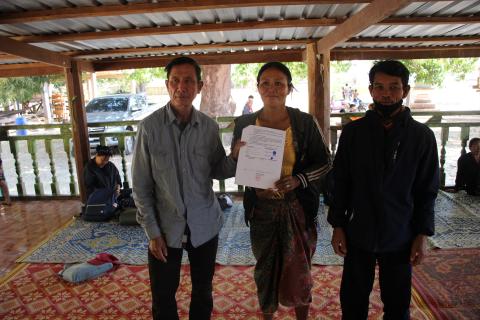
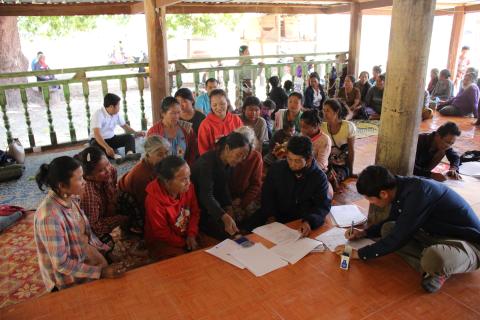
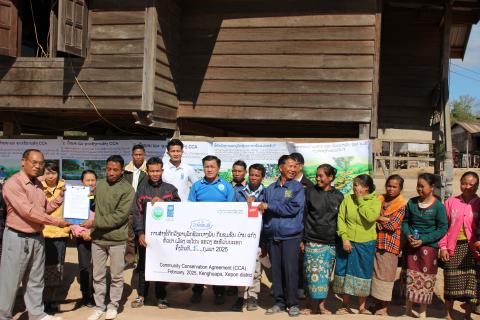
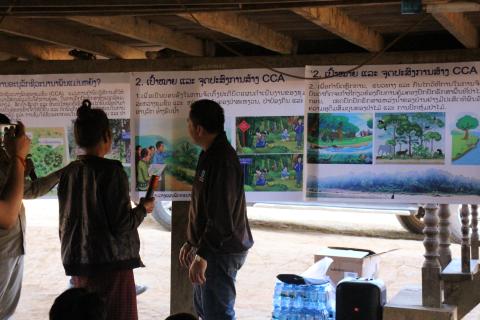
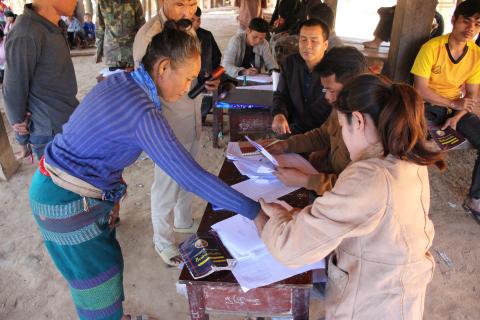
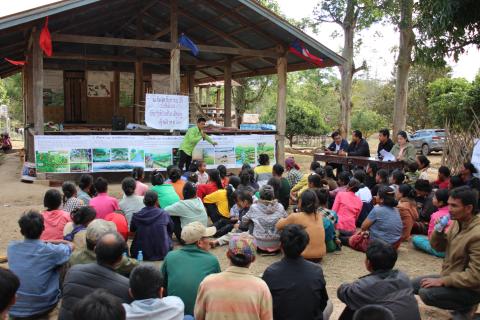
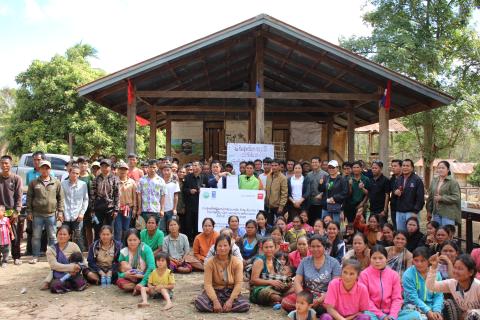
Empowering Communities for Conservation & Sustainable Livelihoods
Project Location
Chonburi District: Mueang Hong Village, Nong District: Saweu Village, TangElaiNeua Village, Sepon District: Keng Huapa Village, KengThaMae Village
Project Description
The Integrated Water Resources Management and Ecosystems-Based Adaptation (IWRM-EbA) Project is a collaborative initiative led by UNDP Lao PDR, in partnership with the Ministry of Natural Resources and Environment (MONRE). The project aims to enhance climate resilience and promote the sustainable management of land and water resources in two of Laos’ most vulnerable regions: the Xe Bang Hieng River Basin and Luang Prabang City. These areas face increasing threats from extreme weather events, including floods and droughts, which jeopardize both local communities and ecosystems. As part of its strategy, the project focuses on Community Conservation Agreements (CCA) as a key tool for involving local communities in the protection and sustainable management of natural resources. By empowering communities to actively participate in the conservation of ecosystems, water resources, and wildlife, the project seeks to strengthen the relationship between people and nature, ensuring that natural resources are managed efficiently and responsibly.
Project Outcomes & Impacts
A Community Conservation Agreement (CCA) is a powerful tool that enables local communities to actively participate in the management, conservation, and protection of their natural resources—including ecosystems, water sources, aquatic life, and wildlife. By fostering a sense of ownership, CCAs help communities enhance their livelihoods while safeguarding nature for a healthier and more sustainable future. From 5-15 February 2025, the IWRM-EBA Project implemented CCA activities in five villages across three districts in Savannakhet Province:
✅ Chonburi District – Mueang Hong Village
✅ Nong District – Sawu Village, Tangalai Neua Village
✅ Sepon District – Keng Huapa Village, Keng Tha Ma Village
💡 Objective: To promote community participation in the protection of the environment and vital natural resources.
🌏 Why Community Conservation Agreements Matter?
CCAs offer numerous benefits, including:
🔹 Sustainable Resource Management – Empowering communities to manage natural resources efficiently and responsibly.
🔹 Preserving Culture & Traditions – Supporting local customs, traditions, and ways of life.
🔹 Economic Opportunities – Creating income through eco-tourism, sustainable agriculture, and resource management.
🔹 Environmental Protection – Strengthening efforts to reduce biodiversity loss and environmental degradation.
🔹 Community Empowerment – Providing knowledge, skills, and tools for effective conservation.
🔹 Stronger Community Bonds – Fostering collaboration between villages and stakeholders for a shared goal.
By engaging communities in conservation, CCAs contribute to sustainable development and the long-term protection of natural resources. Together, we can build a future where people and nature thrive in harmony! 🌱💙
✅ Chonburi District – Mueang Hong Village
✅ Nong District – Sawu Village, Tangalai Neua Village
✅ Sepon District – Keng Huapa Village, Keng Tha Ma Village
💡 Objective: To promote community participation in the protection of the environment and vital natural resources.
🌏 Why Community Conservation Agreements Matter?
CCAs offer numerous benefits, including:
🔹 Sustainable Resource Management – Empowering communities to manage natural resources efficiently and responsibly.
🔹 Preserving Culture & Traditions – Supporting local customs, traditions, and ways of life.
🔹 Economic Opportunities – Creating income through eco-tourism, sustainable agriculture, and resource management.
🔹 Environmental Protection – Strengthening efforts to reduce biodiversity loss and environmental degradation.
🔹 Community Empowerment – Providing knowledge, skills, and tools for effective conservation.
🔹 Stronger Community Bonds – Fostering collaboration between villages and stakeholders for a shared goal.
By engaging communities in conservation, CCAs contribute to sustainable development and the long-term protection of natural resources. Together, we can build a future where people and nature thrive in harmony! 🌱💙
Project Media & Reports
Image
Image
Image
Image
Image
Image
Image
Image
